Koyo Kouoh’s Appointment as 2026 Venice Biennale Curator
Koyo Kouoh’s historic role as the first African woman to curate the Venice Biennale sets the stage for bold narratives and global inclusivity in contemporary art.
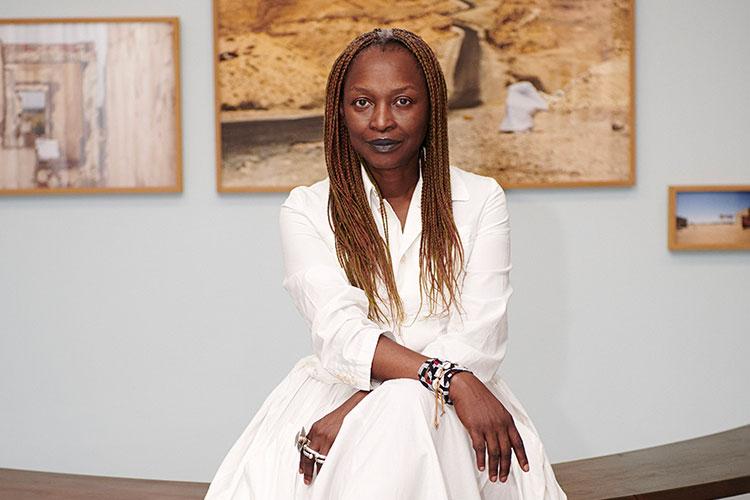
Koyo Kouoh. Courtesy of La Biennale di Venezia.
The Venice Biennale (La Biennale di Venezia), established in 1895, has been the pinnacle of international art exhibitions. Often likened to the Olympics of the art world, it draws artists, curators, collectors, and cultural enthusiasts from around the globe. With its pavilions showcasing national exhibitions and its central exhibitions curated by leading art figures, the Biennale has been both a mirror of and a contributor to global cultural trends.
However, for much of its history, it has reflected a distinctly Eurocentric and male-dominated perspective. Recent efforts have successfully addressed gender disparities, such as the 2022 Biennale being curated by Cecilia Alemani and showcasing a majority of women artists. Yet, the event continues to face criticism for its Eurocentric focus, with artists and curators from non-Western regions still underrepresented.
That’s why the announcement of Koyo Kouoh as the curator for the 2026 edition is being celebrated as a monumental shift. Kouoh, a Cameroonian-born curator and cultural producer, is not only the first African woman in the Biennale’s 130-year history to shape the exhibition but also one of the few individuals from the Global South to lead this prestigious event. Her appointment signals a step toward a more inclusive and diverse narrative within the art world.
Who is Koyo Kouoh?
Born in Cameroon and raised in Switzerland, Koyo Kouoh has carved an extraordinary path through the contemporary art world. She is currently the Executive Director and Chief Curator of the Zeitz Museum of Contemporary Art Africa in Cape Town, the first major museum in Africa dedicated to contemporary art from the continent and its diaspora. Prior to this, she founded RAW Material Company, a dynamic art center in Dakar, Senegal, that focuses on art, knowledge, and society.
Kouoh’s career is defined by a commitment to decolonizing art narratives and creating platforms for African and diaspora voices. Her curatorial projects, such as the critically acclaimed “Still (the) Barbarians” at the 37th EVA International in Ireland, tackled post-colonial themes head-on, exploring the lingering impacts of colonialism on culture and identity. Another standout project, “When We See Us: A Century of Black Figuration in Painting,” celebrated Black artists and narratives over the last hundred years.
Her reputation is that of a fearless, visionary leader who challenges established norms and elevates stories that are often overlooked in mainstream art institutions.
A Historic Appointment
Kouoh’s selection comes at a time when the art world is reckoning with its historical exclusions. La Biennale di Venezia’s President, Pietrangelo Buttafuoco, highlighted how this decision reflects the Biennale’s efforts to “be the home of the future,” noting that Kouoh’s perspective “meets with the most refined, young, and disruptive intelligences.”
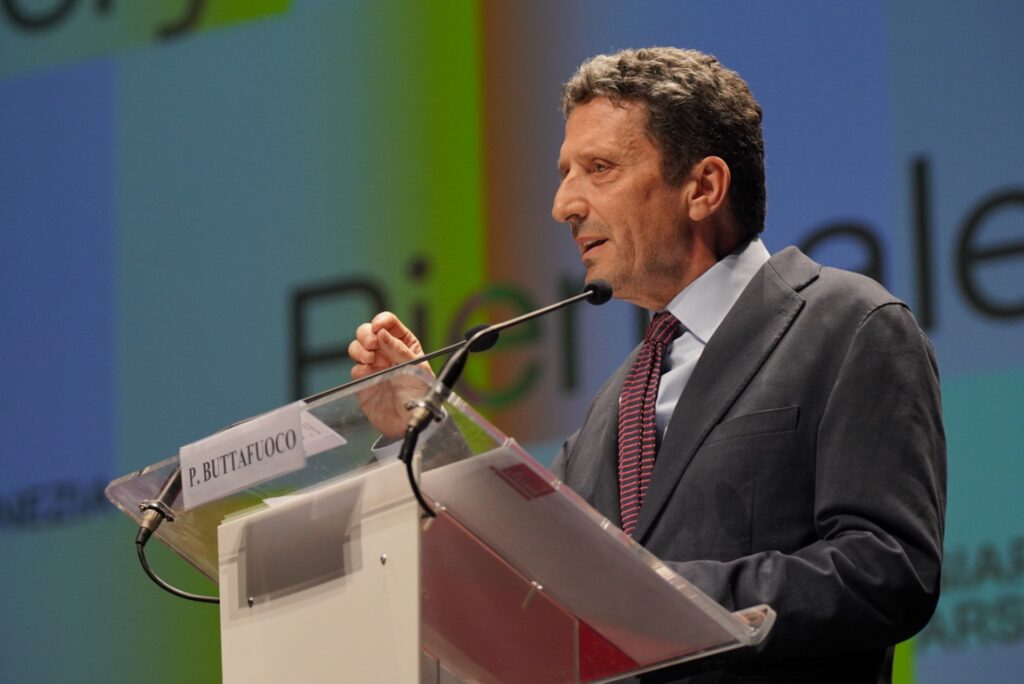 President Pietrangelo Buttafuoco speaking at the 2024 Venice Biennale.
President Pietrangelo Buttafuoco speaking at the 2024 Venice Biennale.
But the significance of this choice goes beyond the Biennale itself. Kouoh’s appointment represents a broader movement toward increasing African and diaspora representation in global art institutions. In previous years, South African artist Zanele Muholi and Ghanaian curator Nana Oforiatta Ayim made headlines for their contributions to the Biennale. These moments challenge the status quo, forcing the art world to reconsider its longstanding hierarchies.
Yet, with progress comes critique. Some argue that such appointments risk tokenism or that they place undue pressure on individuals to “represent” an entire continent. Kouoh’s extensive body of work, however, speaks for itself, ensuring her position is seen as a recognition of talent and leadership rather than a symbolic gesture.
What to Expect in 2026
Given Kouoh’s track record, it’s safe to anticipate a Biennale steeped in powerful narratives, fresh perspectives, and bold artistic experimentation. Themes of post-colonialism, migration, and identity are likely to take center stage, as they have in much of her previous work. Her approach to curation could lead to unprecedented opportunities for underrepresented artists to showcase their work on one of the world’s most influential platforms. Kouoh’s Biennale might also explore how these narratives intersect with global concerns like climate change, technology, and political upheaval.
However, the task is not without its challenges. The Biennale has long been critiqued for its Eurocentrism and its reliance on established art market players. Kouoh will need to balance her vision with the expectations of the Biennale’s diverse, often traditional audience while navigating the pressures of the international art market.
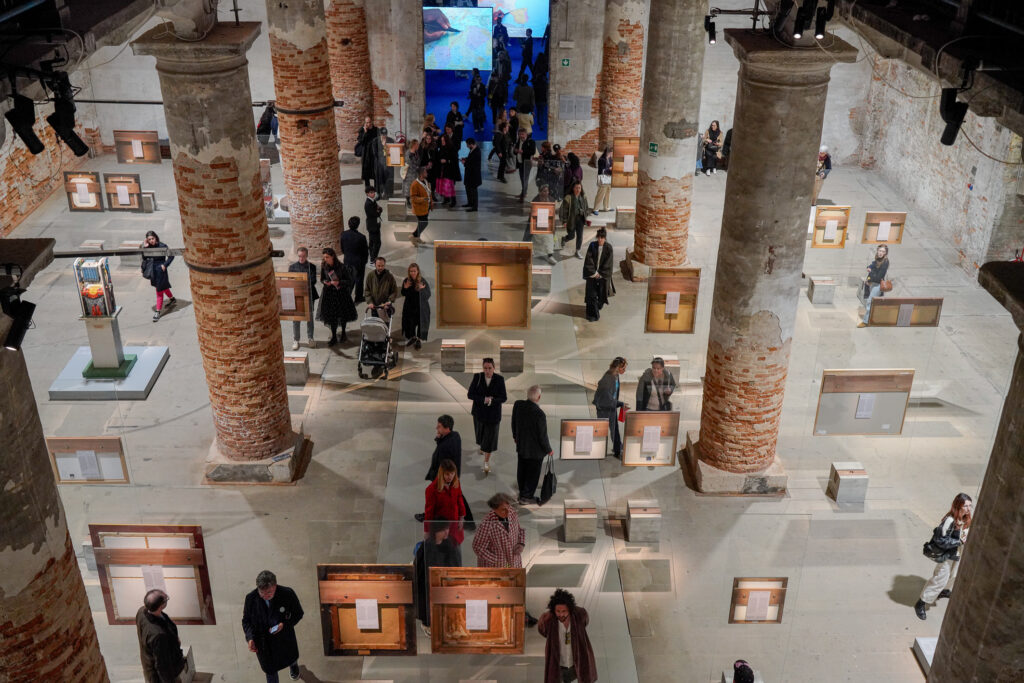 2024 Venice Bienalle.
2024 Venice Bienalle.
A Ripple Effect on the Art World
Kouoh’s appointment could have lasting implications for the art world. She shares that “It is a once-in-a-lifetime honor and privilege to follow in the footsteps of luminary predecessors in the role of Artistic Director, and to compose an exhibition that I hope will carry meaning for the world we currently live in—and most importantly, for the world we want to make.”
Over the past decade, African art has seen a surge in global interest, from the rise of major exhibitions like “African Cosmologies” curated by Mark Sealy to the prominence of artists such as El Anatsui, Wangechi Mutu, and Njideka Akunyili Crosby. Kouoh’s role as artistic director at the Venice Biennale could solidify this momentum, positioning African art as a driving force in contemporary culture.
By elevating voices from Africa and its diaspora, she may inspire other global institutions to follow suit, opening doors for new perspectives and narratives. This shift is about representation and how we can rethink the frameworks through which art is created, curated, and consumed.
Looking Ahead
As the art world anticipates the 2026 Venice Biennale, there is a palpable sense of excitement about what Koyo Kouoh will bring to this historic event. Her unique vision, rooted in deep cultural and historical awareness, has the potential to redefine the Biennale as a platform for critical conversations about the world as a whole.
Kouoh’s appointment reminds us that the art industry is evolving. The question now is not whether she will succeed but how profoundly she will transform the cultural landscape.
—
Sources: La Biennale di Venezia, Zeitz MOCAA, RAW Material Company, ArtNews.
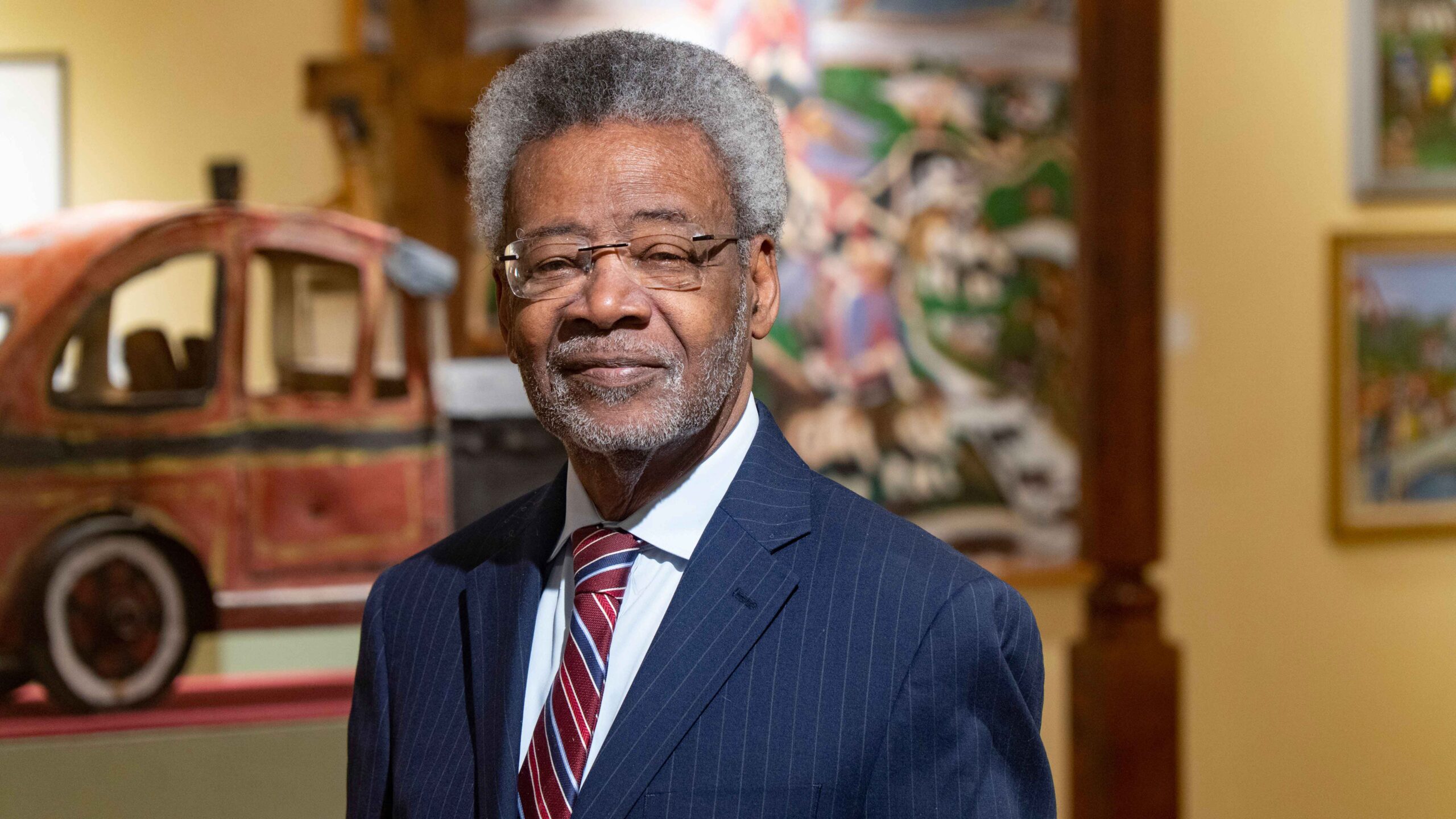 The African American Museum in Dallas Marks 50 Years with Founders Ball
The African American Museum in Dallas Marks 50 Years with Founders Ball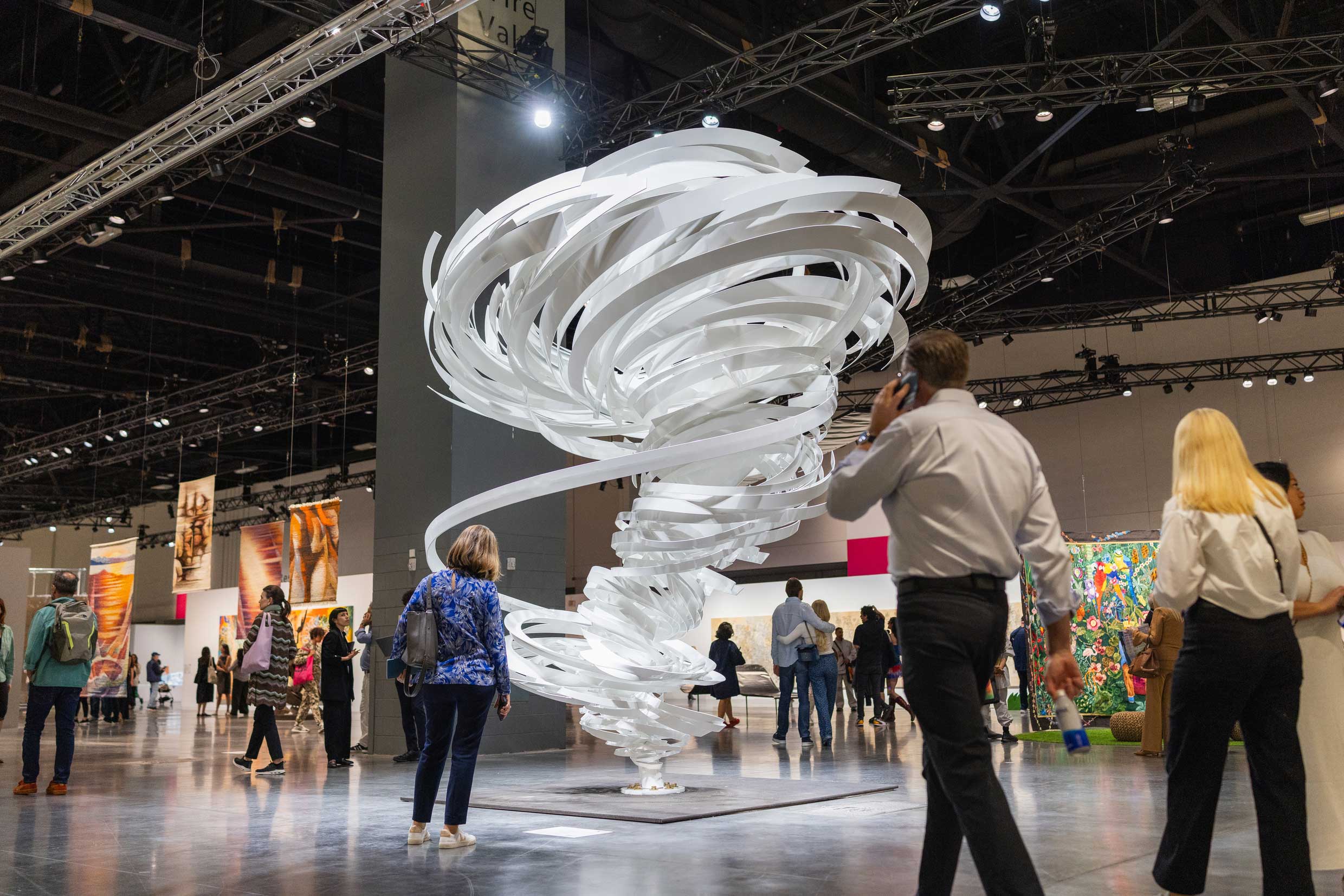 Black Art at Miami Art Week 2024: History, Events, and Cultural Impact
Black Art at Miami Art Week 2024: History, Events, and Cultural Impact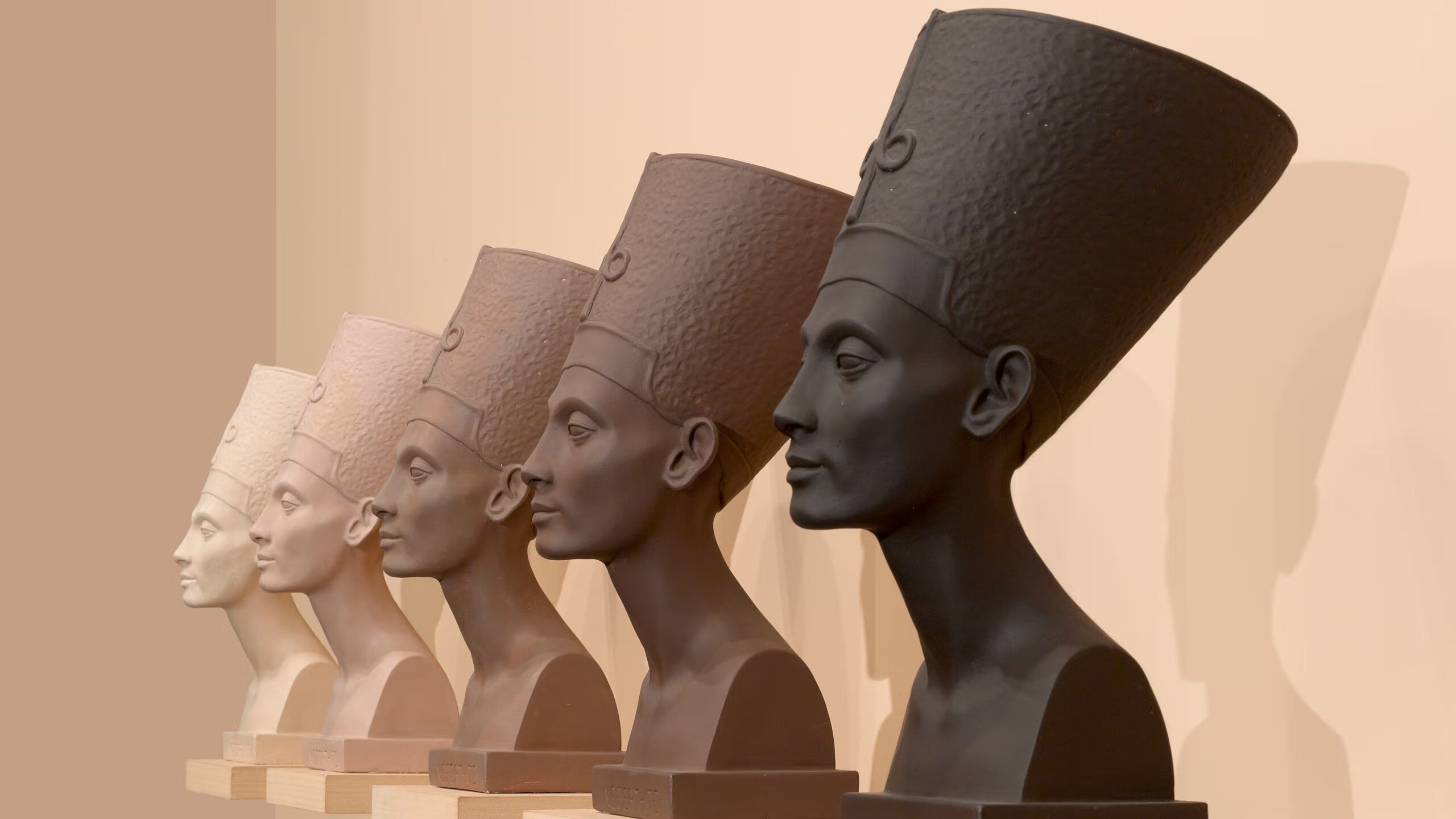 Reclaiming Ancient Egypt: Dream or Distraction for Black Art?
Reclaiming Ancient Egypt: Dream or Distraction for Black Art?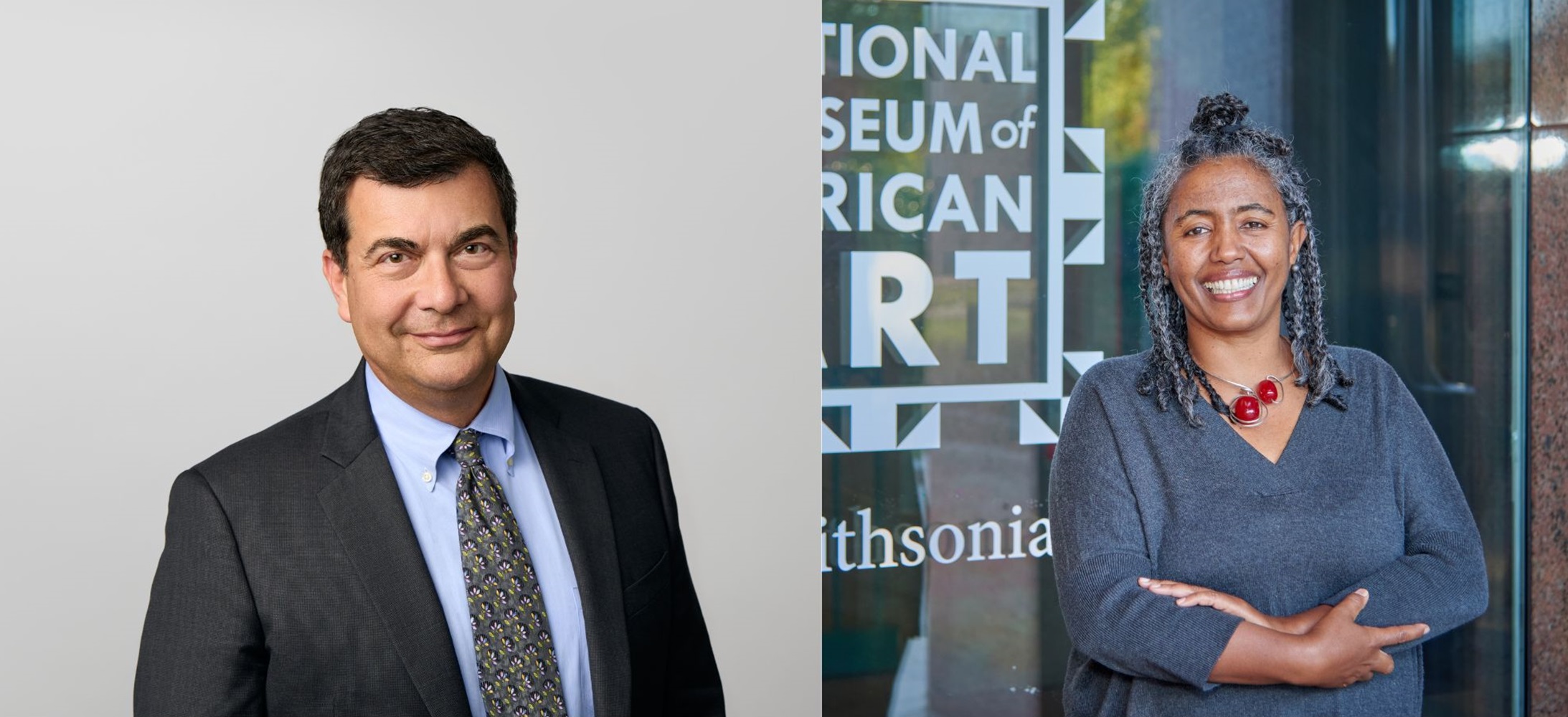 Smithsonian’s National Museum of African Art Appoints New Leadership
Smithsonian’s National Museum of African Art Appoints New Leadership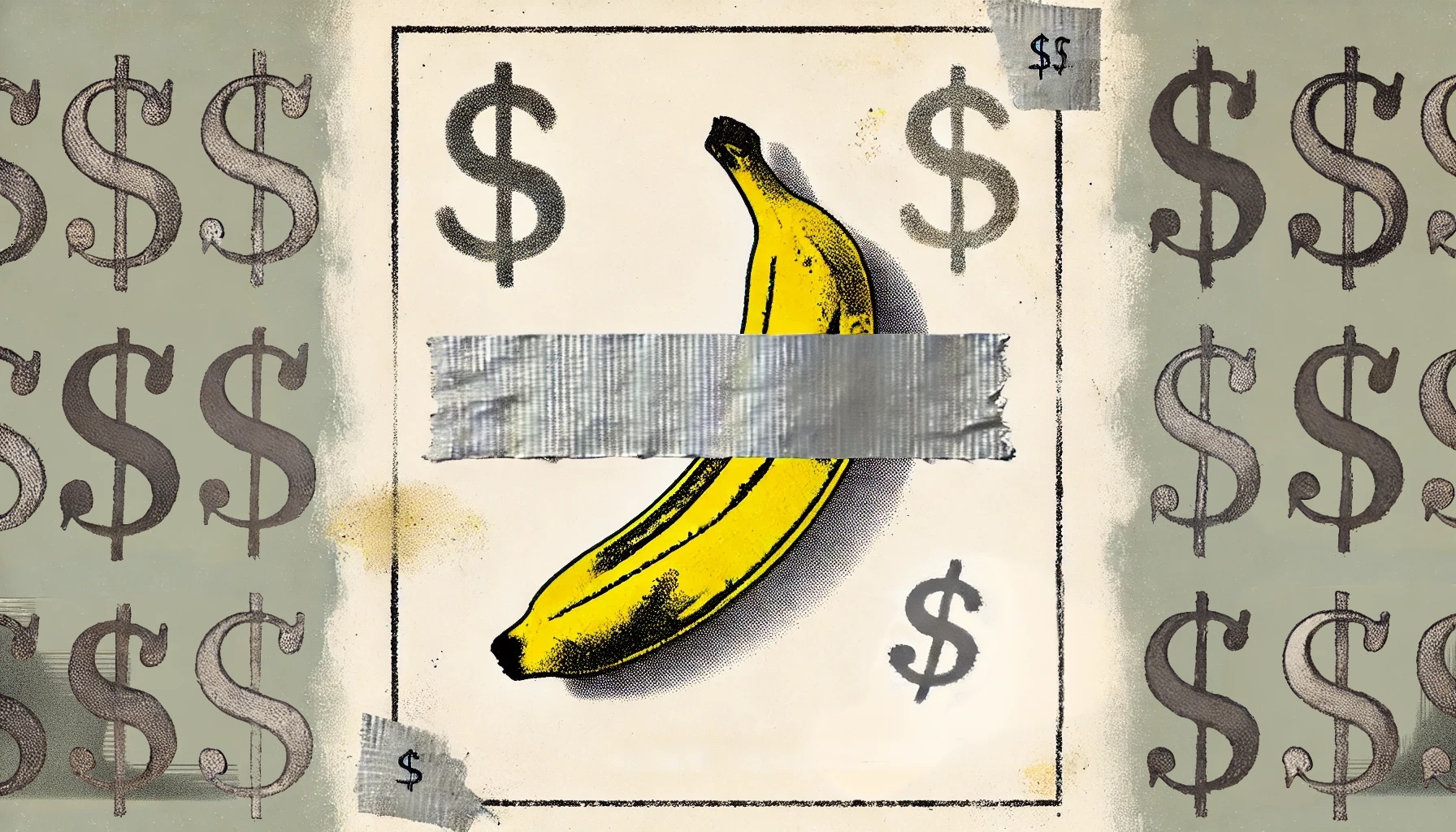 The $6 Million Banana: What It Says About Art, Wealth, and Opportunity
The $6 Million Banana: What It Says About Art, Wealth, and Opportunity

